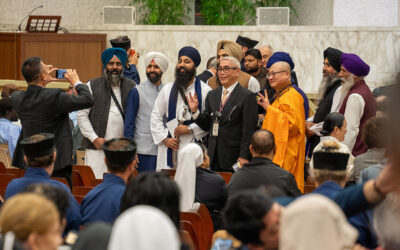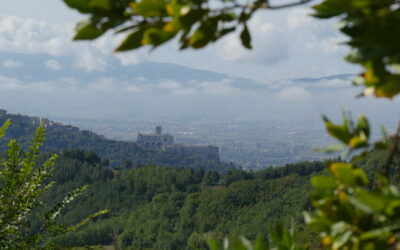 “I am the spokeswoman for the people nobody listens to” says Charity Chege, social worker and a Volunteer of the Focolare Movement. She comes from Juja, Kenya and is the mother of four children. Her work brings her into daily contact with the pain of her fellow citizens: child orphans, elderly who must care for grandchildren whose parents have succumbed to AIDS, ordinary people living in extreme poverty. “On the night before the 2007 elections,” says Charity, I told Chiara Lubich about my wish to serve my people by presenting myself as a candidate for the town council. Chiara encouraged me, reminding me that politics was the love of loves.” Charity was never elected, but says: “For me, nothing changed. I could and should continue to love and serve.” And there were many opportunities. The elections were followed by much violence and conflict among the different ethnic groups: “Many people lost their lives; others lost all they owned, while others had to leave their lands because of the terrible violence.” In 2013 Charity once again became a candidate in a party that shared her values and ideals: “To the great surprise of someone who asked why I hadn’t run with a party with a majority of members from my tribe, I responded: ‘I live for the universal family!’” The electoral campaign turned out to be an opportunity to know and appreciate the hardships and needs of the people: “When we went to visit those who had been left homeless by the violence of the past elections, I felt it more important to love them as best I could, rather than try to explain my electoral platform. I found much hatred, and I spoke to them of forgiveness. Two of my colleagues asked me why I was acting in this way, and I told them that our relationship with the people is the most important thing. If we are truly interested in their happiness we should help them to forgive.” Once again, Charity did not win the election, but many who came to know her commitment have continued to turn to her for assistance. “One day I was at the market,” she says. “A woman came up to me and asked if I could do something for her, since she was ill. She added that many in her village are in the same condition. I realized she was talking about AIDS. This little episode has put me in contact with some thirty people who suffer with the virus. There is much prejudice against these people in our villages, they experience a lot of negativity and mistreatment. They are often estranged from their families or even discarded by them. At times they surrender to the illness and are reluctant to seek the medical care they need. I decided to be personally involved by offering some concrete assistance, loving them one by one, and involving some of the young people of the Focolare Movement. We are trying to make these friends of ours to first feel accepted, and then we try to do what we can for them.”
“I am the spokeswoman for the people nobody listens to” says Charity Chege, social worker and a Volunteer of the Focolare Movement. She comes from Juja, Kenya and is the mother of four children. Her work brings her into daily contact with the pain of her fellow citizens: child orphans, elderly who must care for grandchildren whose parents have succumbed to AIDS, ordinary people living in extreme poverty. “On the night before the 2007 elections,” says Charity, I told Chiara Lubich about my wish to serve my people by presenting myself as a candidate for the town council. Chiara encouraged me, reminding me that politics was the love of loves.” Charity was never elected, but says: “For me, nothing changed. I could and should continue to love and serve.” And there were many opportunities. The elections were followed by much violence and conflict among the different ethnic groups: “Many people lost their lives; others lost all they owned, while others had to leave their lands because of the terrible violence.” In 2013 Charity once again became a candidate in a party that shared her values and ideals: “To the great surprise of someone who asked why I hadn’t run with a party with a majority of members from my tribe, I responded: ‘I live for the universal family!’” The electoral campaign turned out to be an opportunity to know and appreciate the hardships and needs of the people: “When we went to visit those who had been left homeless by the violence of the past elections, I felt it more important to love them as best I could, rather than try to explain my electoral platform. I found much hatred, and I spoke to them of forgiveness. Two of my colleagues asked me why I was acting in this way, and I told them that our relationship with the people is the most important thing. If we are truly interested in their happiness we should help them to forgive.” Once again, Charity did not win the election, but many who came to know her commitment have continued to turn to her for assistance. “One day I was at the market,” she says. “A woman came up to me and asked if I could do something for her, since she was ill. She added that many in her village are in the same condition. I realized she was talking about AIDS. This little episode has put me in contact with some thirty people who suffer with the virus. There is much prejudice against these people in our villages, they experience a lot of negativity and mistreatment. They are often estranged from their families or even discarded by them. At times they surrender to the illness and are reluctant to seek the medical care they need. I decided to be personally involved by offering some concrete assistance, loving them one by one, and involving some of the young people of the Focolare Movement. We are trying to make these friends of ours to first feel accepted, and then we try to do what we can for them.”
Today too we can start again!
Today too we can start again!




0 Comments